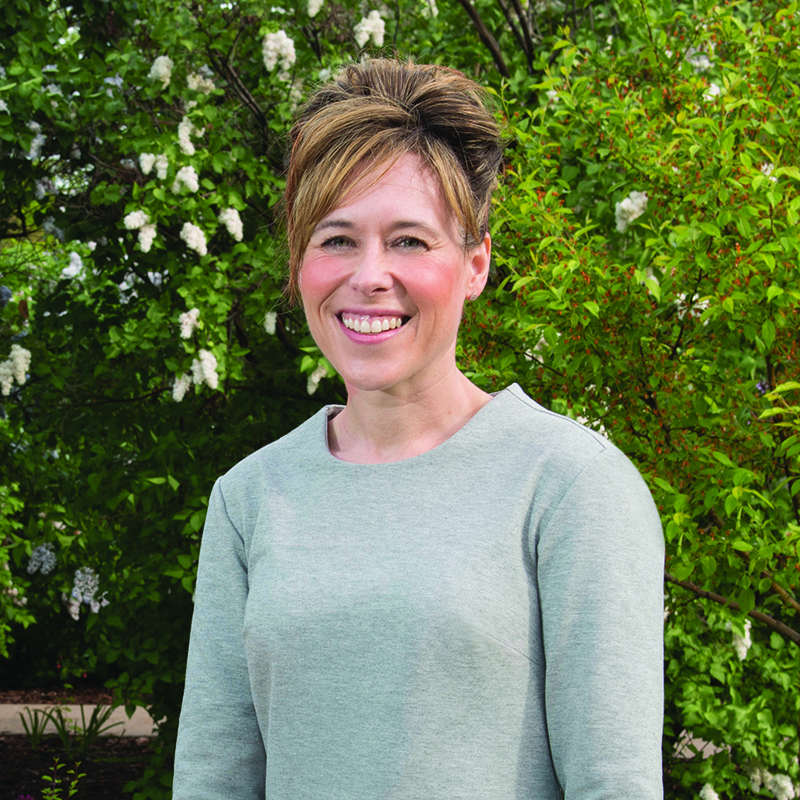
Solving Challenges One Partnership at a Time
international programs focus on education, leadership
Solving grand challenges, like a growing world population, requires the combined efforts of great minds from different backgrounds, according to Tiffany Heng-Moss, interim dean of the College of Agricultural Sciences and Natural Resources at the University of Nebraska–Lincoln.
Global partnerships, including interactions with international students, benefit everyone when it comes to solving these problems. “We have been very fortunate to have two more recent programs that we’ve been able to partner with our global institutions from other parts of the world,” Heng-Moss said.
CHINA 3+1 PROGRAM
The “3+1” program partners with Northwest Agriculture and Forestry University (NWAFU) in Shaanxi Province in China. This is the second-largest agricultural university in China, Heng-Moss said. This program is a partnership with the University of Nebraska–Lincoln Department of Food Science and Technology. Students spend the first three years in the 3+1 program at their home institution, whether that is in China or at the University of Nebraska–Lincoln.
“The cohorts from China come to Lincoln for their fourth year and at the end they earn two degrees,” Heng-Moss said; one from Northwest Agriculture and Forestry University and one from the College of Agricultural Sciences and Natural Resources (CASNR) from the University of Nebraska–Lincoln.
The university’s Department of Food Science and Technology is located in the Food Innovation Center on Nebraska Innovation Campus. The Food Innovation Center, which opened in 2015, provides world-class facilities, including wet and dry lab research space, food grade and non-food grade pilot plant space and a state-of-the-art distance education classroom.
Northwest Agriculture and Forestry University program faculty follow the same program of study as the University of Nebraska–Lincoln Food Science and Technology. During the first two years, the NWAFU students are taught in English by NWAFU faculty. In the third year, University of Nebraska–Lincoln faculty travel to China to teach the participating students. In the fourth year, the NWAFU students come to Lincoln to complete their degrees.
“Our goal with this program would be that we start very early on in the integration with our two student cohorts,” Heng-Moss said. By having students collaborating on projects, although in different parts of the world, these students will be ready and willing to work with each other when they finally meet in person during that fourth year. “The goal is to leverage the unique perspectives and experiences of our students to arrive with a better outcome than any one of us would be able to achieve alone,” she said. The first cohort of this program arrived on the Lincoln campus in the fall of 2018.
RWANDA CUSP PROGRAM
The CASNR Undergraduate Scholar Program (CUSP) is a partnership with Rwanda that allows 50 students a year to come to the University of Nebraska–Lincoln to study in CASNR for four years to earn a Bachelor of Science degree in Integrated Science. The integrated science degree program has three focus areas: conservation agriculture; leadership and entrepreneurship; and agriculture and natural resources, based on the student’s choice of concentration.
Participants are selected based on academic performance and commitment to the goals of the program, Heng-Moss said. Students can explore areas such as animal and plant systems, food production and processing, energy and environmental stewardship, agribusiness and economics, communication, mechanization and irrigation, pest management, Extension education, water systems, to name just a few, she said. Students participating in the CUSP program will return to Rwanda and commit at least five years of their careers to advancing the Rwanda agricultural sector.
“They are the integrated scientists of the future,” Heng-Moss said.
Each student has a mentor in Rwanda who connects with the student virtually to guide her or his professional development. The students return to Rwanda during the summer of their third year in the program to complete an internship before returning to the university to complete their fourth year.
For more information about the 3+1 program, visit https://foodsci.unl.edu/31-program-study
For more information about the CUSP program, visit https://cusp.unl.edu/